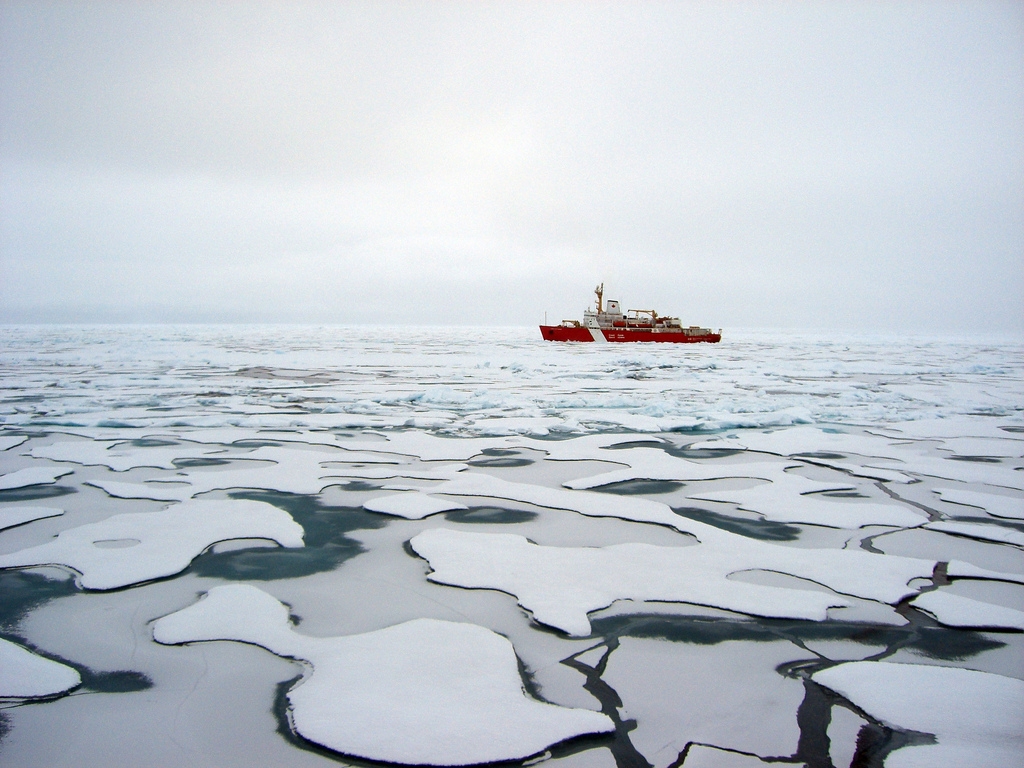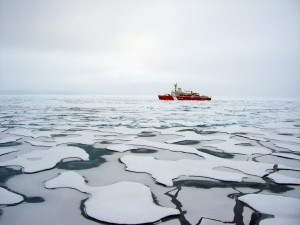
US Must Ratify Law of Sea Convention
 Tensions over resource claims in the Arctic have come a long way since Russia planted a flag on the North Pole’s seabed to claim the entire region in 2007, but challenges remain especially to United States interests. Five out of six nations bordering the Arctic are settling their claims to the Arctic seabed while the US is stuck on the sidelines
Tensions over resource claims in the Arctic have come a long way since Russia planted a flag on the North Pole’s seabed to claim the entire region in 2007, but challenges remain especially to United States interests. Five out of six nations bordering the Arctic are settling their claims to the Arctic seabed while the US is stuck on the sidelines
The US could be left out of valuable Arctic resources if it does not ratify the United Nations Convention on the Law of the Sea Treaty (UNCLOS), the legal authority on the status of Arctic resources. 162 nations, including all nations bordering the Arctic, except the US, are party to the treaty.
Nations are claiming portions of the Arctic seabed based on the extension of the continental shelves they lie on and existing territorial agreements.
The UNCLOS Commission on the Limits of the Continental Shelf is currently considering states territorial claims to Arctic seabed, where resources could be recovered. Canada, Denmark (for Greenland), Norway, Iceland, and Russia have all put fourth claims for Arctic seabed on their extended continental shelves. Without being party to the treaty, the US cannot make claims to Arctic seabed beyond 200 miles off its coast, as designated by the treaty.
The US is literally on the outside looking in as nations divide valuable resources it could be legally claiming.
The US continental shelf is estimated to extend at least 600 miles into the Arctic Sea off the coast of Alaska. This region, called the Arctic Alaska Province, is an incredibly recourse richest area, estimated by the USGS to hold 29.96 billion barrels of oil and 72 billion barrels of natural gas (about 33% of technically recoverable oil and 18% of technically recoverable gas in the Arctic).
Supporters of the treaty assert that through acquiring resource rights, the US could substantially increase its domestic oil and natural gas production in the long term. Such production would lead to greater US energy security and greater investment and employment in the energy sector.
With the US now having so much to lose and a great deal to gain, supporters of the treaty have been pushing congress to ratify UNCLOS. The treaty has been overwhelming backed by US industries, military officials, previous presidential administrations and the Obama administration as a way to confirm US sovereignty in Arctic.
Yet, a small opposition to the treaty remains. The opposition asserts that US should be advancing its resource claims without ratifying what they believe to be a constraining international agreement. Opposition leaders claim that US territorial disputes over the Arctic (with Canada) should be settled through bilateral treaties, not UNCLOS.
Secretary of State Clinton attempted to debunk this argument in a recent Senate Foreign Relations Committee hearing. Clinton asserted that companies have expressed their need for “the maximum level of international legal certainty before they will or could make the substantial investments” in expensive and risky Arctic exploration. In addition Clinton stated “our ability to challenge other countries’ behavior should stand on the firmest and most persuasive legal footing available.”
Supporting Clinton, the chairman of Lockheed Martin (along with other business leaders) has written to the senate supporting the treaty, saying investment in the region “is only going to be secured for rights clearly recognized and protected within the established treaty-based framework.” In sum, companies won’t drill in the Arctic until they are backed by the legal framework of UNCLOS. UNCLOS provides the legal certainty companies need; bi-lateral treaties won’t cut it.
Treaty critics and supporters will continue to debate UNCLOS in a second round of hearings this Thursday. Congressional supporters hope to stomp out critic’s claims before holding a vote on legislation that could change the course of US energy development and international resource management.
Further explanation of UNCLOS can be found in Andrew Holland’s Race for Arctic Energy Resources Shows Need for U.S. to Ratify Law of the Sea Treaty.





